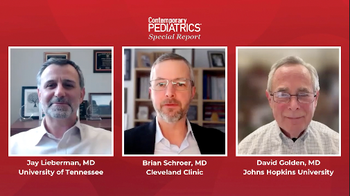Article highlights
- PCPs accurately diagnose ASD with ECHO STAT training.
- Training involves 21 hours over a year, combining virtual and in-person sessions.
- 95% accuracy confirmed through comprehensive autism center evaluations.
- Caregivers prefer local evaluations, citing accessibility and family-centered care.
- Trained PCPs crucial in addressing early autism diagnosis gap.
After receiving specific training in diagnosing autism spectrum disorder (ASD), primary care physicians (PCPs) can accurately and reliably provide a diagnosis in young children with unambiguous ASD symptoms, a recent study found.
The 20 children in the investigation had been diagnosed with ASD by PCPs who were trained using the ECHO (Extension for Community Healthcare Outcomes) Autism Screening Tool for Autism in Toddlers and Young Children (STAT), which is designed to diagnose children at highest risk for ASD. The training involved videoconferencing technology to amplify autism knowledge along with an initial day and a half of in-person training followed by bimonthly, virtual, 90-minute clinics for 12 months. The training focused on diagnostic assessment of children aged 14 to 48 months, the same age range as the children in the study. The investigation also provided parents and caregivers with questionnaires to evaluate their experiences with the diagnostic procedure.
Within a year of the ECHO Autism STAT PCP diagnosis, 20 children received an independent, comprehensive, gold-standard ASD evaluation at an autism center. Using standardized tests, clinicians assessed emotional and behavioral functioning, adaptive skills, cognitive functioning, and presence of diagnostic features of autism. This autism center ASD evaluation verified that 19 of the 20 children (95%) diagnosed by the PCPs indeed had ASD.
In addition, caregivers’ completed questionnaires indicated that they preferred being evaluated in their local community to going to an autism specialty center, given its barriers to access, with the cost of travel and needing to miss work topping the list. Caregivers also expressed confidence in the diagnosis they received using ECHO Autism STAT and noted the family centeredness of the care, such as PCPs providing enough time to discuss the diagnosis and a caring atmosphere along with information.
Investigators noted that this study did not assess how the ECHO Autism STAT performs in children with subtle or complex ASD symptoms.
THOUGHTS FROM DR FARBER:
We have a shortage of trained physicians who can diagnose autism early. In this study, after 21 hours of training over 1 year, a relatively small time investment to my mind, PCPs did an excellent job. However, these were high-risk children (perhaps with associated intellectual disability) in whom the diagnosis may not have been difficult.
For more from the Contemporary Pediatrics October 2023 Vaccine Issue, click here.
Reference:
Sohl K, Levinstein L, James A, et al. ECHO (Extension for Community Healthcare Outcomes) Autism STAT: a diagnostic accuracy study of community-based primary care diagnosis of autism spectrum disorder. J Dev Behav Pediatr. 2023;44(3):e177-e184. doi:10.1097/DBP.0000000000001172




